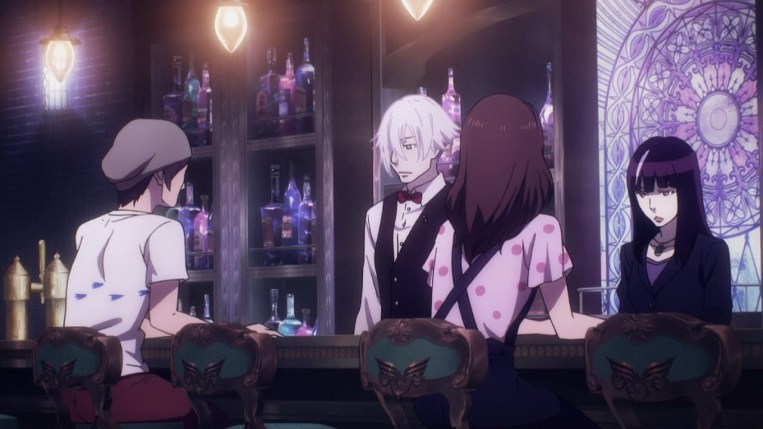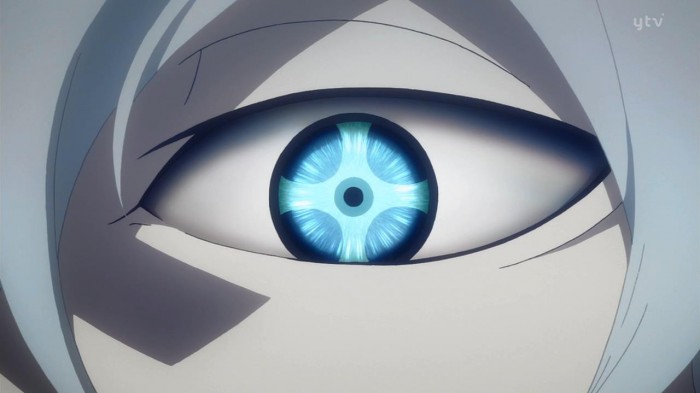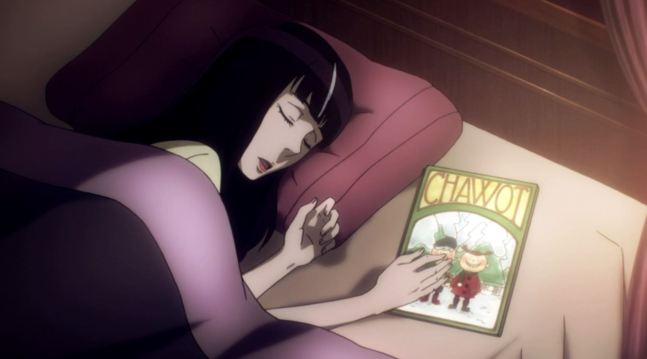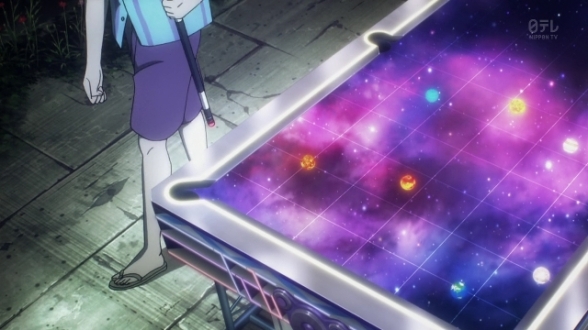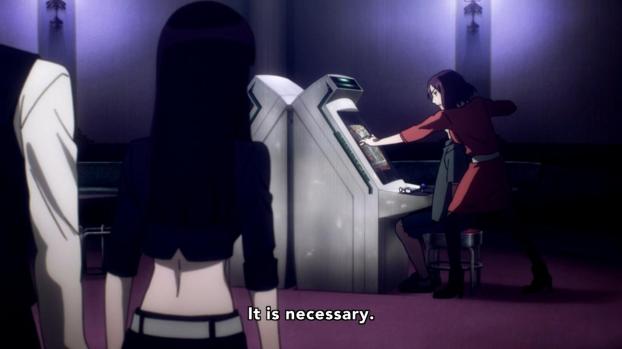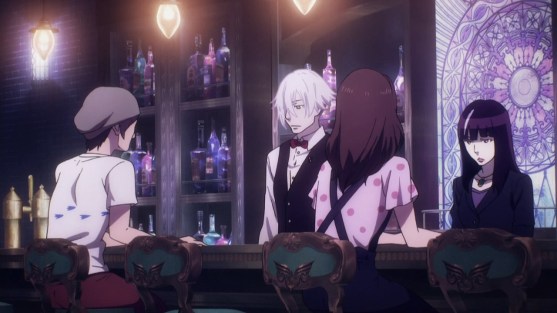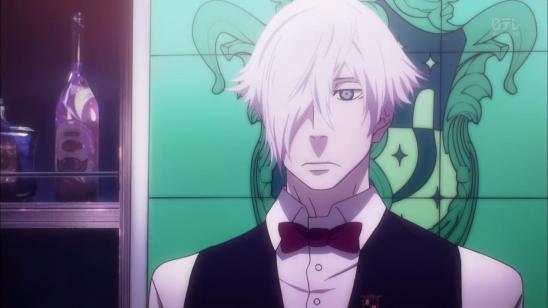Oh god it’s winking at me!
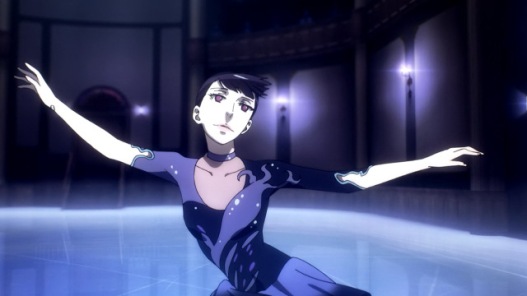
Time for conflicts to come to a head. Time for the veil surrounding Kurokami to come undone. Will you care about her plight, or will this peter out and waste your time? Let’s find out!
I made no secret last time that Death Parade has been trying my patience. Not to the point of where the series is broken, but just a series of questionable choices from the story side of things. Production remains quite strong, and while the acting leans to the hammy, it isn’t really to the detriment of a work where mood is so important to the presentation.
We open with Decim asking to be suspended from judgments, parroting Kurokami’s words from last time. There needs to be more purpose behind them. But Nona quickly sniffs out it’s Kurokami’s influence saying these things, not really Decim himself coming to the conclusion.
Kurokami’s body is breaking down. It seems Human recreations have a finite existence in this afterlife place. Nona orders Decim to judge her finally, and adds in she will send a special guest.
But Decim is aghast. He doesn’t think that darkness is Kurokami’s true nature.
Again, back to this utterly confusing thing about darkness being their metric. That is not what we’ve seen, and why is it the goal?
This is the problem with the dilemma. Arbiters have this dogmatic way they judge, perhaps it is so old a metric that no one lives who was around when it was conceived, as we are led to believe all the arbiters were born at some point. Centuries past, perhaps, but still born. Even creepy grandpa god isn’t REALLY a deity, just a powerful Arbiter type.
“Why do we judge Humans on the lurking darkness within?” “Because.” “But shouldn’t we have a goal?” “Nope, it’s jsut the way it is.” “Okay, so, how about I judge people based on something else, if the reasons behind it don’t matter?” “WHAT? YOU FUCKING HERETIC! DO IT THE RIGHT WAY!”
There needs to be SOMETHING behind this. The argument of tradition is very powerful in Human minds (very much so in Japan), but often those supplement the basic idea of tradition with something. Gay marriage isn’t tradition, therefore it’s wrong. But the argument is also clothed in the idea that it is “immoral”, that there are no children to be conceived therefore the state should not have an interest. Now I’m not trying to debate the merits of those arguments, but merely illustrating that there ARE rationalizations, no matter how flimsy, behind the fact that it is tradition.
If you put “It is tradition” in a vacuum, it ceases to be a moral dilemma, and becomes a black and white argument with only one clear answer for us to conclude. Having a bad guy whose motivation is clear is important, and we lack that here. It’s doubly confusing because they are so dogmatic, while simultaneously saying they couldn’t care less. Continue reading →

